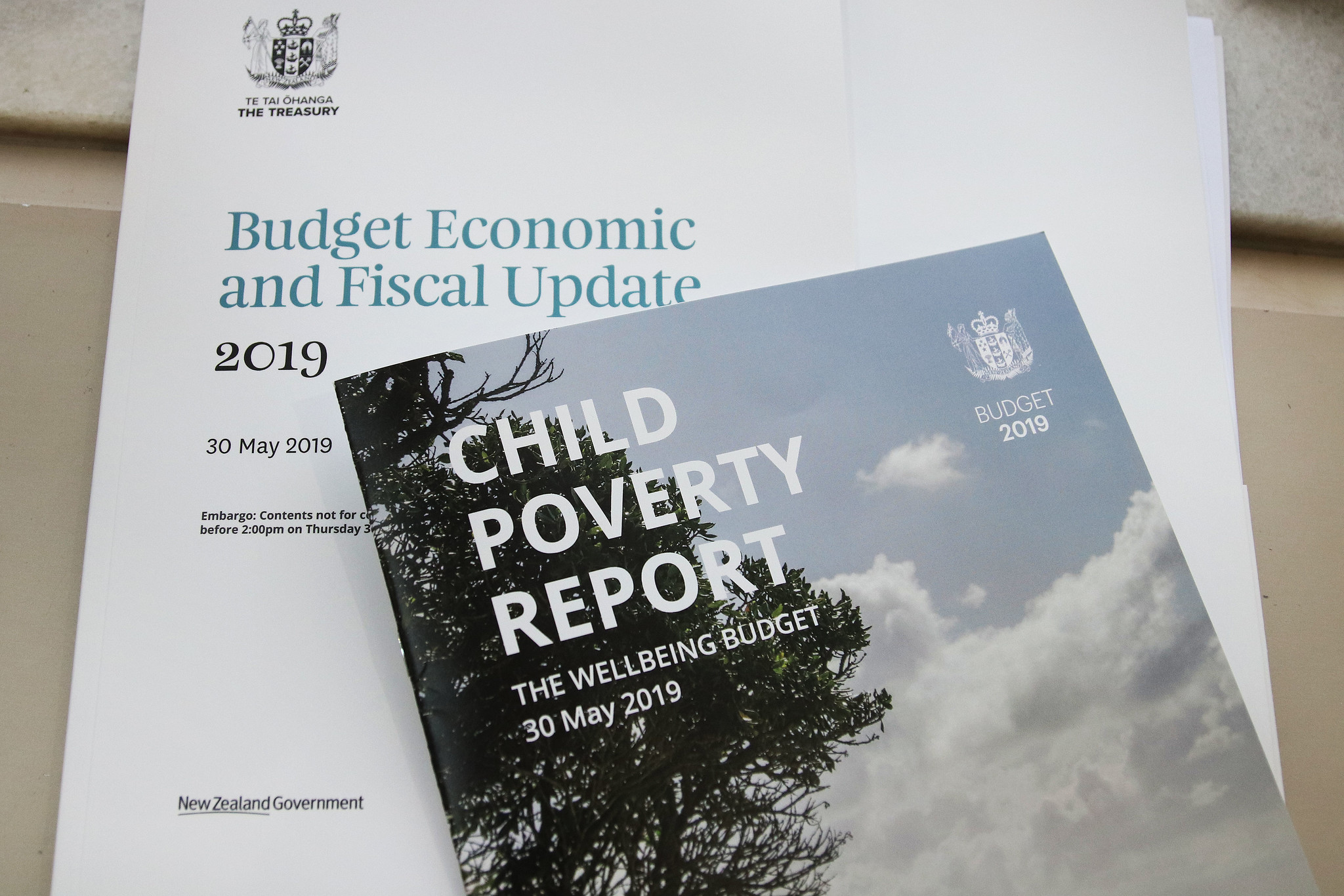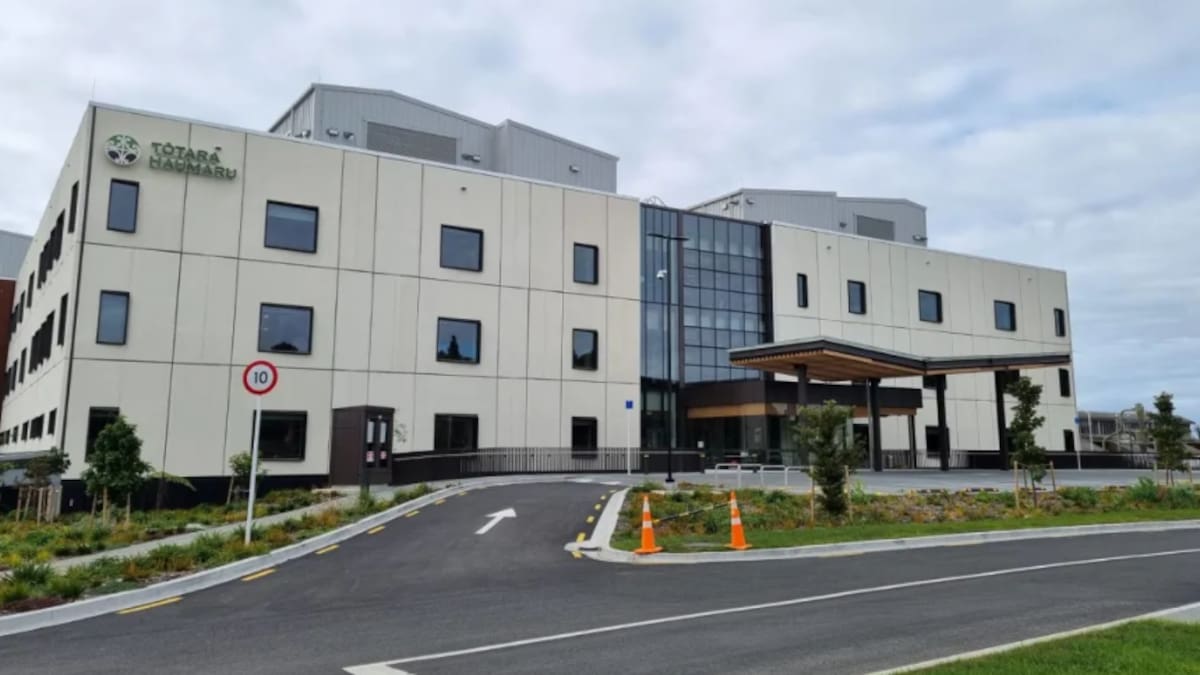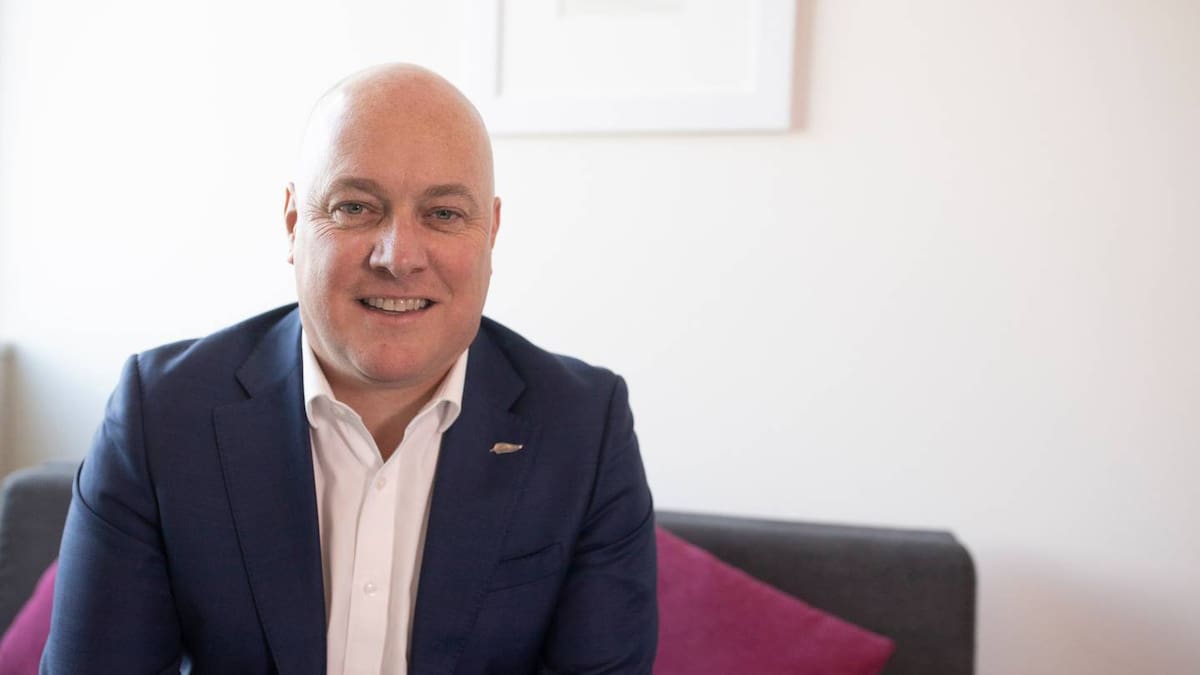Nah Mike Hosking is still a dick.I'm starting to come around to the idea of capital punishment, I've got to that age where you start turning more conservative and you hate the music at Mt Smart on game day and start calling for the death penalty. You wake up listening to the Mike Hosking breakfast after another one of those dreams about Erica Stanford ...I've said too much.
Navigation
Install the app
How to install the app on iOS
Follow along with the video below to see how to install our site as a web app on your home screen.

Note: this_feature_currently_requires_accessing_site_using_safari
More options
You are using an out of date browser. It may not display this or other websites correctly.
You should upgrade or use an alternative browser.
You should upgrade or use an alternative browser.
Politics NZ Politics
- Thread starter wizard of Tauranga
- Start date
Relevant to previous postings here on the sailgp/dolphin culture war - https://www.rnz.co.nz/national/prog...laims-drown-out-facts-in-sailgp-dolphin-drama
I’ve been like many on this site and wondered if Nicola Willis is up to the job. Will, over the weekend, she proved not how smart she is and not how clever she is but that she has reached the same level of deviousness as our previous Finance Minister…. and the media, except for reporting the facts, have ignored it. Why? Because no one on the left (commentators and the Opposition) or commentators from the right want to talk about it. It’s been dealt with in such a way that it wasn’t even mentioned in either the National/Act coalition agreement nor in the National/NZ First coalition agreement… yet, it was one of the things dealt with in the first 100 days since the election.
It’s to do with the new tax rate income from trusts will now be taxed at.
While running the country, Labour, in it’s tax changes to come into effect from yesterday, altered the thresholds and introduced a new tax rate of 39% on the income of trusts (up from 33%). But, there were holes in the legislation.
Firstly, some power lines companies such as Vector in Auckland, are run by trusts and they pay a dividend once a year to their customers. The amount paid would have reduced because of the increase in their tax. Secondly, charities are tax exempt in NZ but the way Labour wrote the law meant they would have had to pay tax on their income if the organisation was a trust.
Then you have Willis. She has been constantly telling us she wouldn’t alter income tax except for the election promises, would not alter company tax nor would she increase GST. BUT, on a Grant Robertson level of deviousness, never mentioned tax paid by trusts. She’s also saying that most of the changes have been brought about after consultation with interested parties like the Public Trust.
Now, while the changes to the thresholds have meant trusts earning under $10,000 won’t have to pay tax, the amount trusts earning over that has increased from what Labour legislated because changes to the thresholds. In other words, a greater tax take without introducing a new tax or altering GST or company tax. Just like Grant Robinson did with the Brightline adjustment and the removal of interest deducibility, Willis will maintain she hasn’t introduced a new tax.... she'll tell us she's only altered the thresholds while keeping it at the same 39% Labor introduced in it's tax legislation.
And that’s why no one wants to mention it…. Labour don’t because the right would simply fire back with how Labour stuffed up the legislation in the first place, how the largest trusts are now paying more, people with small trusts are exempt from paying tax, how people without trusts are better off because their power dividends wouldn’t go down and how charities run by trusts regain their tax-free status.
National don’t want to talk about it in case people bring up the fact that Willis has followed the example of Grant Robinson…. who National spent the last three years calling his “adjustments” new taxes.... after he promised he wouldn't introduce new taxes. Nor do National want it known that more trusts will now be paying more tax under their new settings than Labour’s old ones.
Nothing to see here folk!!!
It’s to do with the new tax rate income from trusts will now be taxed at.
While running the country, Labour, in it’s tax changes to come into effect from yesterday, altered the thresholds and introduced a new tax rate of 39% on the income of trusts (up from 33%). But, there were holes in the legislation.
Firstly, some power lines companies such as Vector in Auckland, are run by trusts and they pay a dividend once a year to their customers. The amount paid would have reduced because of the increase in their tax. Secondly, charities are tax exempt in NZ but the way Labour wrote the law meant they would have had to pay tax on their income if the organisation was a trust.
Then you have Willis. She has been constantly telling us she wouldn’t alter income tax except for the election promises, would not alter company tax nor would she increase GST. BUT, on a Grant Robertson level of deviousness, never mentioned tax paid by trusts. She’s also saying that most of the changes have been brought about after consultation with interested parties like the Public Trust.
Now, while the changes to the thresholds have meant trusts earning under $10,000 won’t have to pay tax, the amount trusts earning over that has increased from what Labour legislated because changes to the thresholds. In other words, a greater tax take without introducing a new tax or altering GST or company tax. Just like Grant Robinson did with the Brightline adjustment and the removal of interest deducibility, Willis will maintain she hasn’t introduced a new tax.... she'll tell us she's only altered the thresholds while keeping it at the same 39% Labor introduced in it's tax legislation.
And that’s why no one wants to mention it…. Labour don’t because the right would simply fire back with how Labour stuffed up the legislation in the first place, how the largest trusts are now paying more, people with small trusts are exempt from paying tax, how people without trusts are better off because their power dividends wouldn’t go down and how charities run by trusts regain their tax-free status.
National don’t want to talk about it in case people bring up the fact that Willis has followed the example of Grant Robinson…. who National spent the last three years calling his “adjustments” new taxes.... after he promised he wouldn't introduce new taxes. Nor do National want it known that more trusts will now be paying more tax under their new settings than Labour’s old ones.
Nothing to see here folk!!!
I see this as more of an issue of a fiscal hole that wasn't picked up by National and now they actually have to rely on that trust tax income at 39% as tax take across the board isn't large enough. Agree it is a stuff up. Kind of mental that the company rate is 28% and the new trust rate is now 39%I’ve been like many on this site and wondered if Nicola Willis is up to the job. Will, over the weekend, she proved not how smart she is and not how clever she is but that she has reached the same level of deviousness as our previous Finance Minister…. and the media, except for reporting the facts, have ignored it. Why? Because no one on the left (commentators and the Opposition) or commentators from the right want to talk about it. It’s been dealt with in such a way that it wasn’t even mentioned in either the National/Act coalition agreement nor in the National/NZ First coalition agreement… yet, it was one of the things dealt with in the first 100 days since the election.
It’s to do with the new tax rate income from trusts will now be taxed at.
While running the country, Labour, in it’s tax changes to come into effect from yesterday, altered the thresholds and introduced a new tax rate of 39% on the income of trusts (up from 33%). But, there were holes in the legislation.
Firstly, some power lines companies such as Vector in Auckland, are run by trusts and they pay a dividend once a year to their customers. The amount paid would have reduced because of the increase in their tax. Secondly, charities are tax exempt in NZ but the way Labour wrote the law meant they would have had to pay tax on their income if the organisation was a trust.
Then you have Willis. She has been constantly telling us she wouldn’t alter income tax except for the election promises, would not alter company tax nor would she increase GST. BUT, on a Grant Robertson level of deviousness, never mentioned tax paid by trusts. She’s also saying that most of the changes have been brought about after consultation with interested parties like the Public Trust.
Now, while the changes to the thresholds have meant trusts earning under $10,000 won’t have to pay tax, the amount trusts earning over that has increased from what Labour legislated because changes to the thresholds. In other words, a greater tax take without introducing a new tax or altering GST or company tax. Just like Grant Robinson did with the Brightline adjustment and the removal of interest deducibility, Willis will maintain she hasn’t introduced a new tax.... she'll tell us she's only altered the thresholds while keeping it at the same 39% Labor introduced in it's tax legislation.
And that’s why no one wants to mention it…. Labour don’t because the right would simply fire back with how Labour stuffed up the legislation in the first place, how the largest trusts are now paying more, people with small trusts are exempt from paying tax, how people without trusts are better off because their power dividends wouldn’t go down and how charities run by trusts regain their tax-free status.
National don’t want to talk about it in case people bring up the fact that Willis has followed the example of Grant Robinson…. who National spent the last three years calling his “adjustments” new taxes.... after he promised he wouldn't introduce new taxes. Nor do National want it known that more trusts will now be paying more tax under their new settings than Labour’s old ones.
Nothing to see here folk!!!
The difference in the tax rates, according to a KPMG article I read a few days ago, is because companies are generally designed to expand an economy through employment, capital growth, manufacturing, providing services, provide income and dividends, etc.I see this as more of an issue of a fiscal hole that wasn't picked up by National and now they actually have to rely on that trust tax income at 39% as tax take across the board isn't large enough. Agree it is a stuff up. Kind of mental that the company rate is 28% and the new trust rate is now 39%
Trusts, on the other hand, are generally used to protect assets and hide income and are "defensive" in nature. People were using their trusts to keep themselves out of the 39% personal tax bracket knowing the trust only had to pay 33%.
that's true, in some respects. The 39% tax rate change is being applied to income of the trust that is taxed within the trust and retained in the trust (that's the part that is changing). If the trust's income was to be distributed to beneficiaries, that income would need to be taxed at the individual's marginal tax rate (this part remains the same).The difference in the tax rates, according to a KPMG article I read a few days ago, is because companies are generally designed to expand an economy through employment, capital growth, manufacturing, providing services, provide income and dividends, etc.
Trusts, on the other hand, are generally used to protect assets and hide income and are "defensive" in nature. People were using their trusts to keep themselves out of the 39% personal tax bracket knowing the trust only had to pay 33%.
What it does do is ensure there is now there is an 11% tax delta between companies and trusts, it will encourage people to use corporate structures to get around it. If the income is being retained, you may as well hold an investment in a company structure (paying 28%) rather than in a trust (paying 39%).
An easy option to get around it quickly is to add a company as a beneficiary of a trust. That way, you can just distribute gross income and avoid the extra 11%...
Of course, if you want to use the income personally, then you can't get around your highest marginal tax rate
I just got an income tax declaration form to fill out for my holding trust which contains the house I live in.
90% of the questions are unrelated to the purpose of the trust, a pain in the arse. This is the first time in 12 years I have had to do a tax return. The trust earns zero income.
I have a trading trust that is over 20 years old. It contains income producing assets, the income is distributed to me and I pay the individual tax on that income. My accountant attends to this and has done for the last 20 years.
Maybe I am wrong but this feels like a witch hunt. Many people like me set up a holding trust to ring fence a property after a marriage or relationship breakdown and are now caught up in unnecessary compliance.
As defensivebomb said, distributing the trusts income to a trustee allows tax to be paid at the trustee's tax rate.
90% of the questions are unrelated to the purpose of the trust, a pain in the arse. This is the first time in 12 years I have had to do a tax return. The trust earns zero income.
I have a trading trust that is over 20 years old. It contains income producing assets, the income is distributed to me and I pay the individual tax on that income. My accountant attends to this and has done for the last 20 years.
Maybe I am wrong but this feels like a witch hunt. Many people like me set up a holding trust to ring fence a property after a marriage or relationship breakdown and are now caught up in unnecessary compliance.
As defensivebomb said, distributing the trusts income to a trustee allows tax to be paid at the trustee's tax rate.
Trusts have been an area of weakness for the IRD. They really have had no idea how individuals link in with trusts, and don't have information on settlors, trustees and beneficiaries.90% of the questions are unrelated to the purpose of the trust, a pain in the arse. This is the first time in 12 years I have had to do a tax return. The trust earns zero income.
I have a trading trust that is over 20 years old. It contains income producing assets, the income is distributed to me and I pay the individual tax on that income. My accountant attends to this and has done for the last 20 years.
Maybe I am wrong but this feels like a witch hunt. Many people like me set up a holding trust to ring fence a property after a marriage or relationship breakdown and are now caught up in unnecessary compliance.
The dumb thing is that almost every trust in NZ pays tax correctly, at the correct tax rates. So they actually have the right information to ensure compliance, and most trusts are compliant. Anyone with a trust does a tax return and pays tax at the required rate. The non-compliance rate is probably about the same for trusts, companies and individuals. In fact, I'd argue it is probably higher as it would usually involve a tax specialist / accountant.
It all started with David Parker and his merry band of muppets creating a hypothesis that wealthy people use trusts to evade tax, so they changed legislation based on this hypothesis to compel people to rather private information and raised the tax rates accordingly. Why does the IRD need to know who will benefit from your trust assets after you aren't around? Should all NZers provide this sort of information to the IRD annually? Should all NZers be required to tell the IRD how much they've directly or indirectly given to loved ones or how they have come about personal assets? If not, why demand that information from people with trusts?
In creating this mess, they've dumped a lot of compliance on everyone and created a wider tax arbitrage between companies and trusts
Rizzah
Contributor
Remove the data gathering, remove the problem.

 newsroom.co.nz
newsroom.co.nz

 www.rnz.co.nz
www.rnz.co.nz

Stats NZ scraps survey gathering key child poverty data
Living in Aotearoa – the largest longitudinal survey on income and living conditions – has been scrapped amid cost blowouts, reports Laura Walters

Government funding ends for 15-year long Growing Up in New Zealand project
Funding for a major study following the lives of more than 6000 Kiwi children since 2009 has ended and the government is considering its future.
Cant have empirical data contradicting govts messagingRemove the data gathering, remove the problem.

Stats NZ scraps survey gathering key child poverty data
Living in Aotearoa – the largest longitudinal survey on income and living conditions – has been scrapped amid cost blowouts, reports Laura Waltersnewsroom.co.nz

Government funding ends for 15-year long Growing Up in New Zealand project
Funding for a major study following the lives of more than 6000 Kiwi children since 2009 has ended and the government is considering its future.www.rnz.co.nz
Stats NZ undertook the 2018 Census with a $126 million budget.... the last one took over $300 million.
I wonder what the difference is. In 2018, there was 4.7 million people in NZ compared to 5.2 million in 2023 so that's an 11% increase in the population. Was the 2023 census almost twice as large as the 2018 one?
TBH, although the longitudinal survey would have added to the cost difference, I wouldn't have thought it would have doubled the cost of conducting a census.
I wonder what Stats NZ budget is in non-Census years.
Unless there was a lot more information that was going to be made available, I can't see why there such a huge difference.
It would interesting to see how much the next census (I think it will be in 2028) will cost.
I wonder what the difference is. In 2018, there was 4.7 million people in NZ compared to 5.2 million in 2023 so that's an 11% increase in the population. Was the 2023 census almost twice as large as the 2018 one?
TBH, although the longitudinal survey would have added to the cost difference, I wouldn't have thought it would have doubled the cost of conducting a census.
I wonder what Stats NZ budget is in non-Census years.
Unless there was a lot more information that was going to be made available, I can't see why there such a huge difference.
It would interesting to see how much the next census (I think it will be in 2028) will cost.
Log in to Facebook
Log in to Facebook to start sharing and connecting with your friends, family and people you know.
 www.facebook.com
www.facebook.com
That's a rather cynical conclusion to reachRemove the data gathering, remove the problem.

Stats NZ scraps survey gathering key child poverty data
Living in Aotearoa – the largest longitudinal survey on income and living conditions – has been scrapped amid cost blowouts, reports Laura Waltersnewsroom.co.nz

Government funding ends for 15-year long Growing Up in New Zealand project
Funding for a major study following the lives of more than 6000 Kiwi children since 2009 has ended and the government is considering its future.www.rnz.co.nz
The first article is about Stats NZ trying to become more efficient, and it was their decision to do this by combining concurrent data gathering to achieve the same objective.
The second article is about a government contract ending, but the work being valued by the current government.
To imply that the government is nefariously trying to hide problems by stopping them being measured is a bit disengenuous
To paraphrase Kevin Costner, "If you build it, they will come", is not the case with a $300 million surgical building at North Shore Hospital.....
There are lights on and hospital beds in place in the four-storey, 150-bed Tōtara Haumaru building, but it could be months before there are patients.
It does not have the staff it needs, and the amount of money allocated to run it for the next financial year has not been decided.
The $300 million facility, with eight operating theatres, was always intended to be opened in stages but the first stage - the ground and first floor - was initially supposed to open last December, then this month.
Now, Te Whatu Ora/Health NZ head of hospital and specialist services Fionnagh Dougan would only say “mid-year” for stage one.
“We don’t have the total number of staff required, along with the work, to open the facility. So it’s a blend about staffing and work.”
There was not even a rough date for when the entire facility would be operational.
“We don’t have a date for it to be fully up and running because that is a long-term strategy requiring us to be funded for additional work so that we can make the best use of the full capacity.”
Funding to run the building for the next financial year (2024/25) was still being decided.
“That budget process is in place at the moment,” Dougan said.
RNZ understood doctors at the hospital were frustrated by the delay in getting the building into action as surgical waiting lists grew.
One said they were looking over at the brand new facility every day with no idea when they would get to use it. They were worried staffing it would be a problem, with big shortages in many areas of the health sector, particularly anaesthetic technicians.
General Surgeons’ Association president Vanessa Blair said recruiting for an entire surgical facility would be a big undertaking - including cleaners, anaesthetists, surgeons and more.
“You have your theatre staff, these are people who sterilise instruments, then there’s nurses, there’s anaesthetic techs ... surgery is a team endeavour.”
As well, cover was needed to make sure patients were cared for overnight, she said.
Dougan said recruiting enough staff was one factor affecting the timing of when the building would become fully operational. Some would come from within the organisation, while work had begun recruiting others.
In terms of the stage one delay, Te Whatu Ora had been reluctant to commit to scheduling surgery in the new building - and staffing it - before knowing for sure construction was finished, she said.
If it did that too early, valuable resources could have been taken away from surgery being done elsewhere in the region.
Dougan said Tōtara Haumaru would be a “fantastic facility” when it was up and running. It would help cut waiting lists, but also prevent the need for public hospitals to have to hold weekend catch-up clinics and the expensive outsourcing of surgery to private hospitals.
It would be used for patients from across Auckland and Northland, not just in the Waitematā district, which covered the north and the west of the city.
There would be four procedure rooms for colonoscopies and gastroscopies as well as two general medical wards for non-surgical care.

 www.nzherald.co.nz
www.nzherald.co.nz
I thought Te Whatu Ora's creation, and then the scrapping of Te Whatu Ora, was supposed to fix things like this.
New Auckland surgical building Tōtara Haumaru cannot open due to lack of staff
A brand new surgical building the size of a provincial hospital is sitting empty on the grounds of North Shore Hospital, its opening delayed and no new date set.There are lights on and hospital beds in place in the four-storey, 150-bed Tōtara Haumaru building, but it could be months before there are patients.
It does not have the staff it needs, and the amount of money allocated to run it for the next financial year has not been decided.
The $300 million facility, with eight operating theatres, was always intended to be opened in stages but the first stage - the ground and first floor - was initially supposed to open last December, then this month.
Now, Te Whatu Ora/Health NZ head of hospital and specialist services Fionnagh Dougan would only say “mid-year” for stage one.
“We don’t have the total number of staff required, along with the work, to open the facility. So it’s a blend about staffing and work.”
There was not even a rough date for when the entire facility would be operational.
“We don’t have a date for it to be fully up and running because that is a long-term strategy requiring us to be funded for additional work so that we can make the best use of the full capacity.”
Funding to run the building for the next financial year (2024/25) was still being decided.
“That budget process is in place at the moment,” Dougan said.
RNZ understood doctors at the hospital were frustrated by the delay in getting the building into action as surgical waiting lists grew.
One said they were looking over at the brand new facility every day with no idea when they would get to use it. They were worried staffing it would be a problem, with big shortages in many areas of the health sector, particularly anaesthetic technicians.
General Surgeons’ Association president Vanessa Blair said recruiting for an entire surgical facility would be a big undertaking - including cleaners, anaesthetists, surgeons and more.
“You have your theatre staff, these are people who sterilise instruments, then there’s nurses, there’s anaesthetic techs ... surgery is a team endeavour.”
As well, cover was needed to make sure patients were cared for overnight, she said.
Dougan said recruiting enough staff was one factor affecting the timing of when the building would become fully operational. Some would come from within the organisation, while work had begun recruiting others.
In terms of the stage one delay, Te Whatu Ora had been reluctant to commit to scheduling surgery in the new building - and staffing it - before knowing for sure construction was finished, she said.
If it did that too early, valuable resources could have been taken away from surgery being done elsewhere in the region.
Dougan said Tōtara Haumaru would be a “fantastic facility” when it was up and running. It would help cut waiting lists, but also prevent the need for public hospitals to have to hold weekend catch-up clinics and the expensive outsourcing of surgery to private hospitals.
It would be used for patients from across Auckland and Northland, not just in the Waitematā district, which covered the north and the west of the city.
There would be four procedure rooms for colonoscopies and gastroscopies as well as two general medical wards for non-surgical care.

New surgical building can't open due to lacking staff
The four-storey, 150-bed Tōtara Haumaru building was meant to open in December.
I thought Te Whatu Ora's creation, and then the scrapping of Te Whatu Ora, was supposed to fix things like this.
It should be easy enough to use it as a waiting room. That is what everyone that enters the public health system does.To paraphrase Kevin Costner, "If you build it, they will come", is not the case with a $300 million surgical building at North Shore Hospital.....
New Auckland surgical building Tōtara Haumaru cannot open due to lack of staff
A brand new surgical building the size of a provincial hospital is sitting empty on the grounds of North Shore Hospital, its opening delayed and no new date set.
There are lights on and hospital beds in place in the four-storey, 150-bed Tōtara Haumaru building, but it could be months before there are patients.
It does not have the staff it needs, and the amount of money allocated to run it for the next financial year has not been decided.
The $300 million facility, with eight operating theatres, was always intended to be opened in stages but the first stage - the ground and first floor - was initially supposed to open last December, then this month.
Now, Te Whatu Ora/Health NZ head of hospital and specialist services Fionnagh Dougan would only say “mid-year” for stage one.
“We don’t have the total number of staff required, along with the work, to open the facility. So it’s a blend about staffing and work.”
There was not even a rough date for when the entire facility would be operational.
“We don’t have a date for it to be fully up and running because that is a long-term strategy requiring us to be funded for additional work so that we can make the best use of the full capacity.”
Funding to run the building for the next financial year (2024/25) was still being decided.
“That budget process is in place at the moment,” Dougan said.
RNZ understood doctors at the hospital were frustrated by the delay in getting the building into action as surgical waiting lists grew.
One said they were looking over at the brand new facility every day with no idea when they would get to use it. They were worried staffing it would be a problem, with big shortages in many areas of the health sector, particularly anaesthetic technicians.
General Surgeons’ Association president Vanessa Blair said recruiting for an entire surgical facility would be a big undertaking - including cleaners, anaesthetists, surgeons and more.
“You have your theatre staff, these are people who sterilise instruments, then there’s nurses, there’s anaesthetic techs ... surgery is a team endeavour.”
As well, cover was needed to make sure patients were cared for overnight, she said.
Dougan said recruiting enough staff was one factor affecting the timing of when the building would become fully operational. Some would come from within the organisation, while work had begun recruiting others.
In terms of the stage one delay, Te Whatu Ora had been reluctant to commit to scheduling surgery in the new building - and staffing it - before knowing for sure construction was finished, she said.
If it did that too early, valuable resources could have been taken away from surgery being done elsewhere in the region.
Dougan said Tōtara Haumaru would be a “fantastic facility” when it was up and running. It would help cut waiting lists, but also prevent the need for public hospitals to have to hold weekend catch-up clinics and the expensive outsourcing of surgery to private hospitals.
It would be used for patients from across Auckland and Northland, not just in the Waitematā district, which covered the north and the west of the city.
There would be four procedure rooms for colonoscopies and gastroscopies as well as two general medical wards for non-surgical care.

New surgical building can't open due to lacking staff
The four-storey, 150-bed Tōtara Haumaru building was meant to open in December.www.nzherald.co.nz
I thought Te Whatu Ora's creation, and then the scrapping of Te Whatu Ora, was supposed to fix things like this.
Gosh those landlords really are doing it hard. I take it all back, they need the billions in tax breaks

 www.nzherald.co.nz
www.nzherald.co.nz

Christopher Luxon's houses earned him 15 times what he will get as National leader
He is National's top dog — and Parliament's top property owner.
Cynical maybe, but true.That's a rather cynical conclusion to reach
The first article is about Stats NZ trying to become more efficient, and it was their decision to do this by combining concurrent data gathering to achieve the same objective.
The second article is about a government contract ending, but the work being valued by the current government.
To imply that the government is nefariously trying to hide problems by stopping them being measured is a bit disengenuous
This government is the most far right, authoritiarian neoliberal government we've had in 30 years. These so called free speech warriors don't want any scrutiny at all.
Manufacture a crisis, gut the public service, sell it all off - it's happening right in front of your eyes.
Corrupt, corrupt, morally bankrupt. Of the rich, for the rich, by the rich.
Up the wahs.
- Thread starter
- #8,099
Is that like Labour removing all the govt departments targets as soon as they came in and then wait lists blew out, education outcomes dropped, crime ballooned, emergency housing surged, etc?Remove the data gathering, remove the problem.
Luxon announced today nine new targets: which included shorter stays in emergency departments, shorter wait times for (elective) treatment, reduced child and youth offending, reduced violent crime, fewer people on the Jobseeker Support Benefit, increased student attendance, more students at expected curriculum levels, fewer people in emergency housing and reduced net greenhouse gas emissions.
Key areas that have deteriorated under Labour which as you say, removed the targets to remove the problem.
Accountability. I like it. The failure to meet even minimum expectations in health and education systems has been diabolical.
ALL Governments. Not this one specificallyThat's a rather cynical conclusion to reach
The first article is about Stats NZ trying to become more efficient, and it was their decision to do this by combining concurrent data gathering to achieve the same objective.
The second article is about a government contract ending, but the work being valued by the current government.
To imply that the government is nefariously trying to hide problems by stopping them being measured is a bit disengenuous
